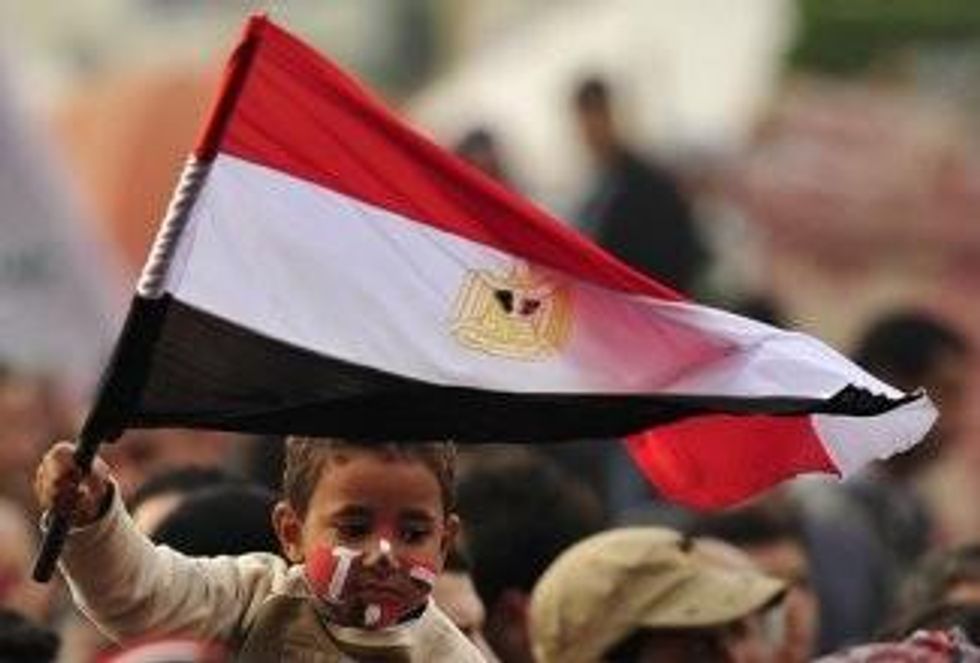The optimism generated by the Arab spring is now giving way to anxieties about where these changes are taking Arab societies. The idealism of the young in their millions for a dignified life where human rights are respected, where the rulers serve the people instead of enslaving them, is being sorely tested by the emergence of destructive sectarianism and ethnic tensions. Imperial powers, assorted kings and despots play their power games by stoking up fear and divisions among the populace. "You don't want another Iraq, do you?" dictators cry.
Aljazeera (Arabic) reported on a conference of Arab thinkers and commentators entitled "The Arab Revolution and Democracy - The roots of sectarianism and how to combat it" organized by the Arabic Centre for the study and research in political thought. It warns that "sectarian and ethnic tensions and divisions are complicating and impeding the birth of democracy in the region."
These obstacles and problems on the road to true democracy should come as no surprise to any objective observer of events. Those with vested interests in the old despotic regimes are not going to relinquish their power and wealth so easily. Driving the revolution into the destructive blind alley of sectarianism and ethnicity is their way of countering the glorious revolution of the young. Azmi Bishara, head of the Centre, opined that these sectarian tensions should have been expected and "it is wrong and naive to sweep them under the carpet of unity." Wajeeh Kanso, academic at the University of Lebanon, believes that "sectarianism is an ever present danger" because knowledge of the true democratic ideals is superficial among the populace, citing and regretting the lack of representation of the young revolutionaries in the new parliaments.
I agree that there are these dangers. The question, however is this: are these divisions really deep in society or are they being played up and heightened by counter revolutionary forces and corrupt politicians to shore up their power base? I believe it is the latter, even in Iraq where the fabric of Iraqi society was ruptured by an illegal invasion and subsequent war.
Egypt, a pivotal country in the Arab world, is still a revolution in progress. The Egyptian people are now struggling with the military junta that still more or less represents the old regime. Hundreds of thousands of people gathered in Tahrir Square in Cairo to commemorate the first anniversary of the revolution on 25 January, and to remind the Supreme Council of the Armed forces that currently rules Egypt that they have not gone away and will continue their protests until full democracy is established. What happens in Egypt matters and will have profound influence on the rest of the Arab World.
I am not as pessimistic as many commentators are; the reason being that this revolution is grass roots based; it is not led by army officers spouting nationalism and empty slogans, only to become worse than the kings and despots they replace. The revolutions are led collectively by young people who have, particularly in the cases of Tunisia and Egypt, given the world a lesson in the power of mass peaceful action. They have shown that their idealism, passion, resilience and their courage are stronger and more powerful than the instruments of repression and violence wielded by the regimes of Zine El Abidine Ben Ali and Hosni Mubarak. Their tenacity in using peaceful means to fight the forces of darkness is nothing short of miraculous.
The revolutionary young of Egypt are fully aware that more needs to be done. Al-akhbar Arabic Newspaper (27 January) quotes some of the people in Tahrir Square and gives a flavour of the slogans on banners, such as "Down with military rule" and "Where is our revolution, Field Marshal, we do not feel any change?" in reference to Field Marshal Tantawi, Head of the Supreme Council of the Armed Forces (SCAF). One demonstrator was quoted as saying:
"What we achieved needs to be safeguarded... and most important to remember is that some of the actions of the military junta are more brutal than those of the dictator Hosni Mubarak. The revolution must continue until full powers are transferred to an elected government."
The chains of fear imprisoning the Arab people have been broken by the revolutionary young; the genie is out of the bottle and cannot be put back. The tide of pent up yearning to be treated with dignity, respect and to be free is triumphant. Sectarianism is but one of a number of setbacks and difficulties on that road on which the Arab masses have embarked. But make no mistake, these will be overcome and the Arabs will be free.

